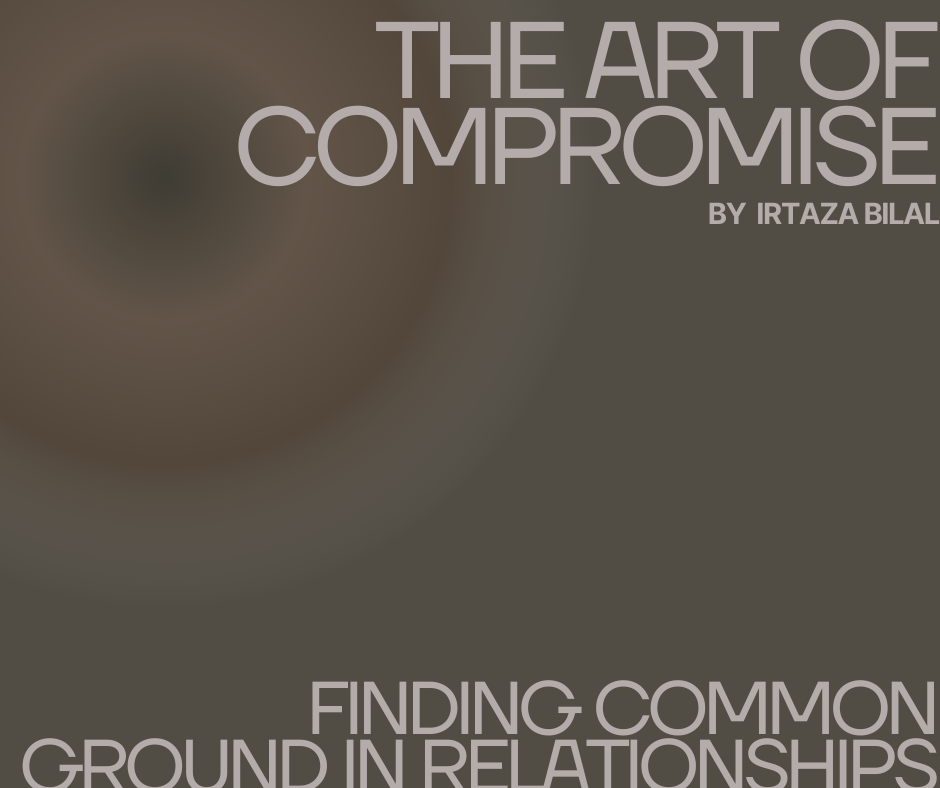Relationships are like intricate dances where two individuals with unique preferences, perspectives, and priorities come together. It’s natural for differences to arise, but the key to maintaining healthy relationships lies in the art of compromise. Compromise doesn’t imply giving up your needs; rather, it’s about finding a middle ground that honors both parties. In this blog, we delve into the importance of compromise in relationships and offer practical insights on how to navigate this delicate art.
The Balancing Act
Compromise is not synonymous with sacrifice. It’s about striking a balance between what you want and what your partner desires. Imagine a seesaw, where both ends need to be of equal weight for harmony. In relationships, both individuals must contribute to maintain equilibrium.
Building Trust Through Communication
The Art of Compromise Finding Common Ground in Relationships. Effective communication is the foundation of compromise. Honest and open conversations help in understanding each other’s perspectives and expectations. Sharing your thoughts and listening actively create an environment of trust where compromise becomes a collaborative effort, rather than a forced decision.
Understanding Each Other’s Needs
To compromise successfully, it’s crucial to understand each other’s needs and priorities. Take time to discuss what matters most to both of you. This understanding forms the basis for finding solutions that satisfy both parties.
Seeking Win-Win Solutions
A compromise doesn’t mean someone wins and the other loses. Strive for win-win solutions that leave both individuals feeling satisfied. This might involve creative problem-solving and thinking outside the box.
Focusing on the Big Picture
furthermore, The Art of Compromise Finding Common Ground in Relationships. In the heat of an argument, it’s easy to lose sight of the bigger picture. Remind yourselves of the reasons you’re together and the shared goals you have. This perspective can help you prioritize compromise over conflict.
Flexibility and Adaptability
Life is ever-changing, and so are relationships. Flexibility and adaptability are essential. What worked as a compromise before might need adjustments as circumstances evolve?
Taking Turns and Making Trade-Offs
Compromise often involves taking turns and making trade-offs. It’s about recognizing that sometimes, you’ll get what you want, and at other times, your partner will. This rhythm keeps the relationship dynamic and fair.
Celebrating the Middle Ground
The middle ground where compromise thrives is a space worth celebrating. Instead of dwelling on what you didn’t get, focus on the fact that you both came together to find a solution that honors both of your wishes.
Avoiding Resentment
Unresolved conflicts can lead to resentment over time. Compromise helps address issues head-on, preventing feelings of bitterness from taking root. It’s an investment in your relationship’s long-term health.
The Strength of Compromise
In conclusion, compromise is not a sign of weakness; it’s a testament to the strength of a relationship. It shows that you value your partner’s happiness and are willing to work together to create harmony. The art of compromise is a continuous learning process; an ongoing dialogue that nurtures the bond you share. So, remember to listen, communicate, and embrace the beauty of meeting in the middle.
As you master this art, your relationships will flourish, becoming a source of mutual growth, joy, and strength. Through compromise, you’ll not only find common ground but also create a foundation for a lifetime of shared experiences.

